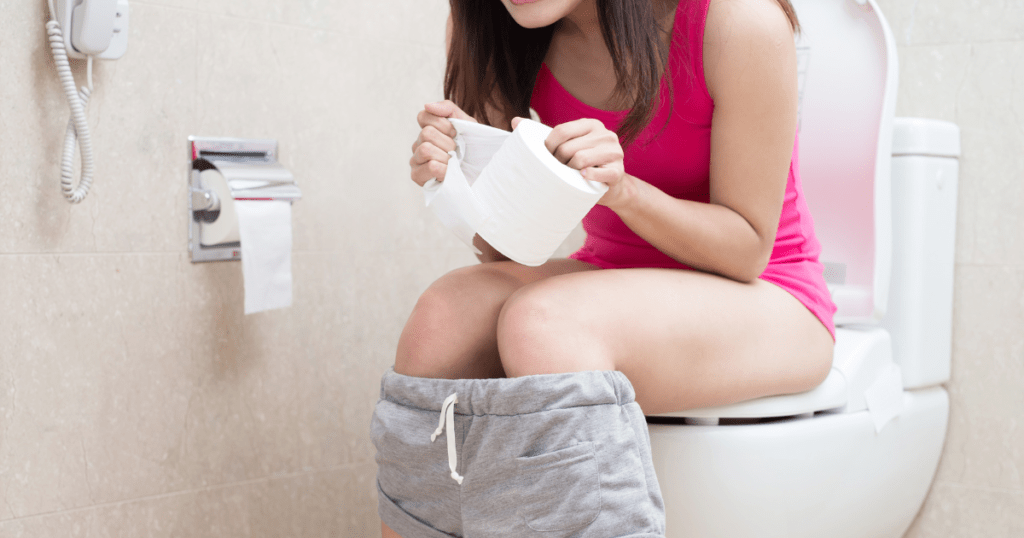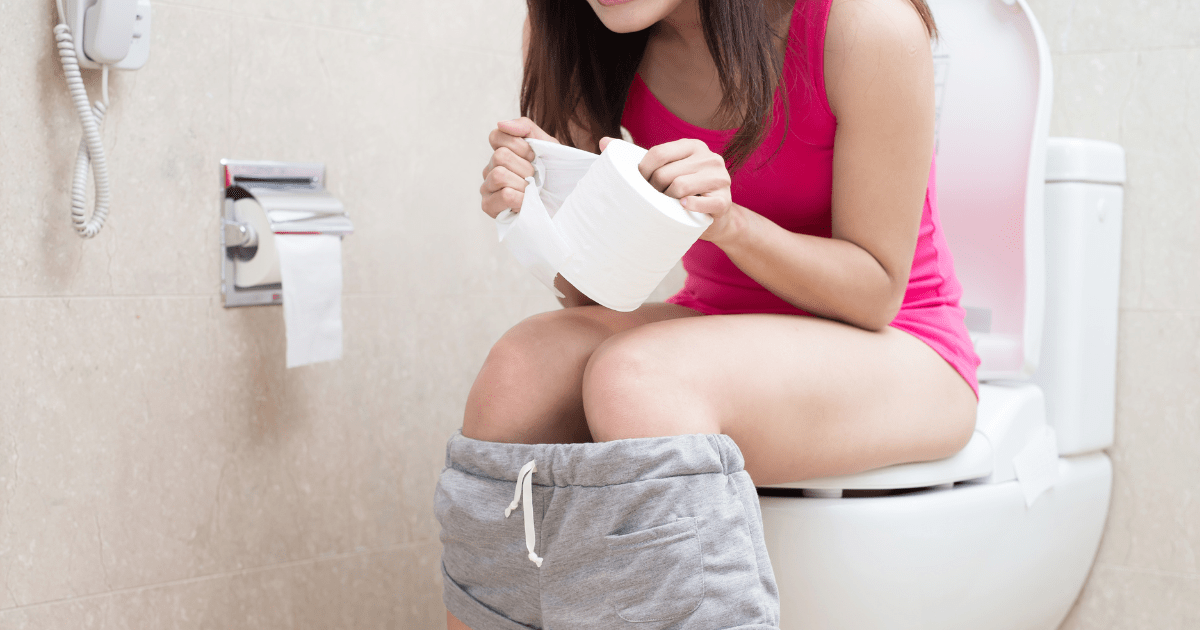Constipation: Symptoms, Causes, and Remedies
Confronting Constipation: Causes, Symptoms, Treatments, and Preventive Measures for Constipation Management and Relief.
Overview
Constipation is when individuals experience discomfort due to infrequent bowel movements. It’s commonly identified when passing small, hard, and dry stools less than three times weekly. However, regular stool elimination varies from person to person, ranging from three times a day to three times a week.
Roughly 4 million people in the United States face frequent constipation, making it a prevalent gastrointestinal issue leading to around 2.5 million doctor visits yearly. Factors contributing to it can include a lack of dietary fiber, fluids, or exercise. Additionally, certain medications or underlying medical conditions may be responsible.

Typically, constipation is managed through lifestyle modifications involving dietary changes, increased physical activity, or over-the-counter medications. In some cases, healthcare professionals might recommend specific treatments or alterations in medications to address it effectively.
Persistent constipation, referred to as chronic constipation, may necessitate treating underlying conditions exacerbating or causing constipation in the long term.
Symptoms
Symptoms indicating constipation include passing fewer than three stools weekly, experiencing hard, dry, or lumpy stools, straining or pain during bowel movements, feeling of incomplete stool passage, sensation of rectal blockage, or needing to use a finger to aid in stool passage. Chronic constipation is defined as having two or more of these symptoms consistently for three months or more.
Consult a healthcare provider if constipation persists for more than three weeks, significantly interferes with daily activities, or if there’s rectal bleeding, blood in stools, unusual changes in stool color or shape, continuous stomach pain, or unintended weight loss.
Reasons
Reasons behind constipation variations in bowel movements differ among individuals, ranging from three times a day to thrice a week. It’s crucial to understand your typical pattern. Generally, it arises due to the slow movement of stool through the large intestine or colon, leading to excessive water absorption and resulting in hard, dry stools that are difficult to expel.
The normal process involves the colon absorbing water while food progresses through it, forming solid waste. Muscle contractions facilitate the movement of stool towards the rectum, where most of the water gets absorbed, solidifying the stool. However, when colon contractions are slow, excessive water is absorbed due to delayed stool movement, leading to constipation.
Common triggers for this problem encompass various factors such as medications, lack of physical activity, insufficient fluid intake, a low-fiber diet, irritable bowel syndrome, ignoring the urge to pass stool, changes in routine due to travel, pregnancy, or aging, intestinal function issues, and misuse of laxatives.
Treatment for constipation
Treatment for constipation varies based on individual factors, determined by your doctor, considering your age, overall health, medical history, and the severity of the condition. Factors like your tolerance for specific medications or therapies, expectations for recovery, and personal preferences also influence the chosen treatment.
Typically, addressing constipation involves dietary and lifestyle adjustments to ease symptoms and prevent recurrence. Treatment options may apply:
- Dietary Changes: Adopting a diet rich in fiber (around 20 to 35 grams daily) promotes the formation of softer, bulkier stool. Foods like beans, whole grains, bran cereals, fresh fruits, and vegetables contribute to increased fiber intake. Conversely, limiting low-fiber foods such as ice cream, cheeses, meats, and processed foods is beneficial.
- Laxatives: When dietary and lifestyle alterations aren’t effective, your doctor might prescribe laxatives to alleviate constipation.
- Adjusting or Stopping Medications: Some medications can induce constipation as a side effect. These may include opioid pain relievers and drugs used for pain management, high blood pressure, seizures, depression, nervous system disorders, and allergies. Modifying or discontinuing these medications could help relieve constipation.
- Biofeedback: For chronic constipation due to anorectal dysfunction, biofeedback therapy may be employed. This method retrains the muscles responsible for controlling bowel movements.
Lifestyle changes like increasing fluid intake (water and juices), regular physical exercise, and allotting sufficient time for daily bowel movements can also aid in managing constipation.
Role of Medications
Certain medications, especially opioid pain relievers, might cause constipation. Additionally, medications used for conditions like pain management, high blood pressure, seizures, depression, nervous system disorders, and allergies can also contribute to this problem as a side effect.
Role of Pelvic Floor Muscles
The muscles responsible for supporting organs in the lower torso are termed pelvic floor muscles. Both their ability to relax and their capacity to exert pressure are essential for passing stool from the rectum. Issues involving weakness or lack of coordination in these muscles can lead to persistent constipation.
Colon or Rectum Obstructions
Alterations or damage to tissues within the colon or rectum might obstruct the movement of stool. Additionally, the presence of tumors in these areas or nearby tissues can result in blockages.
Other Contributing Factors
Various conditions can impact the functionality of muscles, nerves, or hormones involved in stool passage. Chronic constipation might be associated with numerous factors, including:
- Irritable bowel syndrome
- Diabetes
- Multiple sclerosis
- Nerve dysfunction or damage
- Overactive thyroid (hyperthyroidism)
- Parkinson’s disease
- Pregnancy Sometimes, the root cause of chronic constipation remains unidentified.
Risk Elements
Certain factors may heighten the likelihood of experiencing chronic constipation, such as:
- Advancing age
- Being female
- Limited or no physical activity
- Presence of mental health conditions like depression or eating disorders
Potential Complications
Complications arising from chronic constipation encompass:
- Inflamed tissues surrounding the anus (hemorrhoids)
- Tears in the anal tissues (anal fissures)
- Accumulation of hard stools in the colon (fecal impaction)
- Protrusion of rectal tissues from the anal opening (rectal prolapse)
Preventive Measures
- The subsequent suggestions serve as aids in preventing the onset of constipation.
- Consume a substantial amount of high-fiber edibles, encompassing vegetables, fruits, legumes, and whole-grain products.
- Limit intake of low-fiber foods, such as processed items, dairy, and certain meats.
- Ensure adequate fluid intake.
- Maintain physical activity levels and engage in regular exercise.
- Pay heed to the body’s signals for bowel movements.
- Establish a consistent routine for bowel movements, particularly after meals.
Sources:
Johns Hopkins. Constipation. (https://www.hopkinsmedicine.org/health/conditions-and-diseases/constipation). Accessed November 21, 2023
Mayo Clinic. Constipation (https://www.mayoclinic.org/diseases-conditions/constipation/symptoms-causes/syc-20354253). Accessed November 21, 2023
Category
- Health Issues (72)
- Healthy Diet (48)
- Herbs for Health (11)
- Mental Health (33)
- Skin Care (20)

